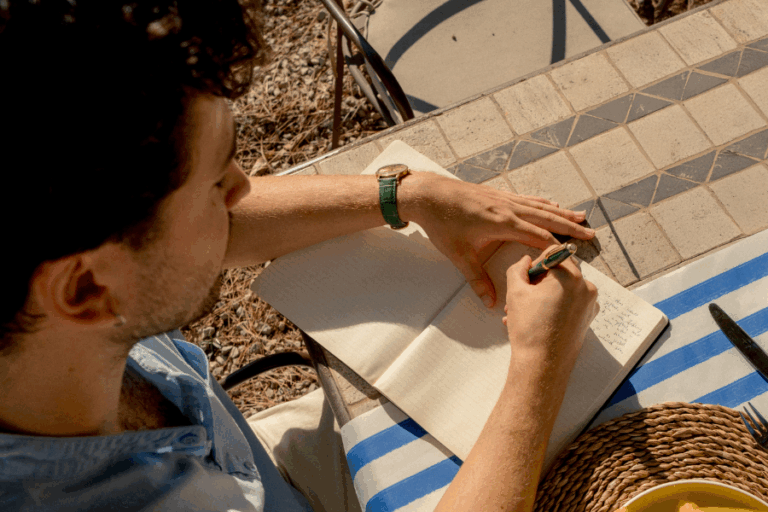If you’re reading this, chances are you’re carrying a heavy weight. Someone you love is struggling with addiction and you’re probably not sure what to do. First, I want you to know that you’re not alone and that it’s normal not to know how to help. Millions of families face this. I’ve been in your shoes, too. It can feel isolating and confusing, which is why I want to share some steps you can take that will truly make a difference. You’re not alone. I promise, there’s hope.
Before I talk about how you can help someone living with addiction, I want to make it a point to note that addiction doesn’t just affect the person using substances; it has a ripple effect on families, friendships, and entire communities. When someone you love is in the grip of addiction, it’s natural to feel scared, angry, exhausted, or hopeless. The person you knew prior to addiction looks nothing like the person you see now. There may be dramatic physical changes such as weight loss, hair, skin, and teeth changes and/or personality changes like anger, lying, apathy, or absence. You might feel like you don’t even recognize them.
But here’s the good news: there are real, compassionate ways to help without losing yourself in the process.
Step 1: Educate Yourself About Addiction
One of the most powerful things you can do is learn what addiction really is. Addiction is not simply a matter of “bad choices” or lack of willpower or motivation. It’s a complex brain disorder that hijacks motivation and decision-making.
I encourage you to start thinking of addiction as what it is—a medical condition. Just like diabetes or cancer, addiction affects people’s physical, mental, and social health. When you start viewing addiction through that lens, it can help shift you from feeling overwhelmed and frustrated to compassion and empathy.
By continuing to educate yourself on addiction, you’ll expand the language and understanding you have, which in turn will help you better support your loved one when they’re ready for help. I recommend checking out The Partnership to End Addiction at https://drugfree.org/ which offers a number of ways for families to connect when seeking help. And https://findtreatment.gov/ to help find resources in your area.
Step 2: Set Healthy Boundaries
While challenging to set and sometimes hard to maintain, having compassionate boundaries is supportive to a loved one struggling with addiction. It’s easy to fall into patterns of enablement, like covering for them, giving money, or rescuing them from consequences. In turn, you may find yourself battling other members of the family who are enabling and in denial while you are the person trying to set boundaries and use the right resources.
While it often comes from a place of love, enabling can keep the cycle going. Boundaries are not punishments; they’re a way to protect your own mental health and give your loved one the space to recognize the impact of their actions. Saying “I can’t give you money, but I will drive you to a treatment appointment” is a boundary rooted in real love.
Step 3: Encourage Professional Help
Recovery is possible, but it rarely happens alone. Encourage your loved one to talk with a counselor, join a support group, or consider a treatment program. If they’re resistant, don’t give up. Sometimes just planting the seed is enough for them to consider it later when they are ready.
You can offer to:
- Research local addiction treatment centers
- Help them find a doctor or therapist who specializes in substance use disorder
- Attend family therapy sessions to learn how to support without controlling
- Provide recovery resources like recovery apps or support groups
Step 4: Consider Staging an Intervention
Sometimes, despite all your efforts, your loved one may continue denying there’s a problem or refusing help. It may get to a point where you feel extreme urgency to intervene. Without acting quickly, you fear the worst may happen. In these moments, a structured intervention can be a powerful tool.
An intervention is a carefully planned meeting, typically guided by a certified, reputable interventionist, where family and friends come together to express concern and outline clear choices. As an interventionist myself, I’ve walked families and their loves ones through this experience many times.
What’s involved in an intervention:
- Planning: A trained interventionist helps the family prepare, ensuring the process is safe, respectful, and effective. You will get directions and homework assignments to complete prior to the actual intervention taking place.
- Gathering: Those closest to the person (family, close friends, sometimes even colleagues) come together with a unified boundary-driven message delivered with love and care. A good interventionist will help each person craft that but the voice will be entirely his or her own.
- Conversation: Each person shares specific concerns, examples of how addiction has affected them, and what boundaries will be in place moving forward.
- Ultimatum: The goal is not just to talk but to present a clear next step, usually an open bed at a treatment center, so the person can accept help right away. Many times, I have had transportation scheduled and waiting for an immediate road trip accompanied by me and sometimes a medical professional if there is a health risk.
Why interventions work:
Interventions mimic what’s often called “hitting bottom,” but in a safer, more intentional way. Instead of waiting for a devastating crisis (an overdose, arrest, or medical emergency), the intervention creates a moment of truth where the person feels the impact of their addiction and sees treatment as the only path forward.
Step 5: Take Care of Yourself
This step is often overlooked, but it may be the most important. Supporting someone through addiction is exhausting and emotionally draining. If you burn out, you won’t be able to help.
Find your own support system, whether that’s Al-Anon, a therapist, or simply trusted friends who understand what you’re going through. Practice self-care without guilt: rest, exercise, journaling, or simply giving yourself permission to feel all the feels you’re experiencing.
Step 6: Hold on to Hope
Addiction recovery is rarely a straight line. Relapse can happen, and progress may feel painfully slow. But recovery is possible. I’ve seen it over and over again. Individuals and families can come back from the darkest moments stronger than they ever imagined.
What your loved one needs most is hope and the belief that change is possible. Your steady presence can be a lifeline.
How Holon Health Can Help
At Holon Health, we know how overwhelming it feels when someone you love is struggling with addiction. That’s why we designed a program where our clients get access to their own care team and a digital therapeutic app designed to make recovery more accessible, supportive, and effective. Our approach is judgement-free, rooted in evidence, and based on driving the best recovery outcomes by utilizing daily lessons and cash rewards for positive actions.
Whether your loved one is navigating early recovery, facing setbacks, or working toward long-term stability, our clinical team and digital program is here to walk alongside them.
Learn more about Holon Health.
Refer someone to Holon Health.
Final Thoughts
If someone you love is struggling with addiction, the most important thing you can do is stay connected without losing yourself. Educate yourself, set boundaries, encourage professional help, and take care of your own wellbeing.
And if you’re looking for a partner in the process, someone who can provide both compassionate providers and digital recovery tools, Holon Health is here. We are dedicated to making recovery more accessible, more personal, and more possible, one step at a time.



